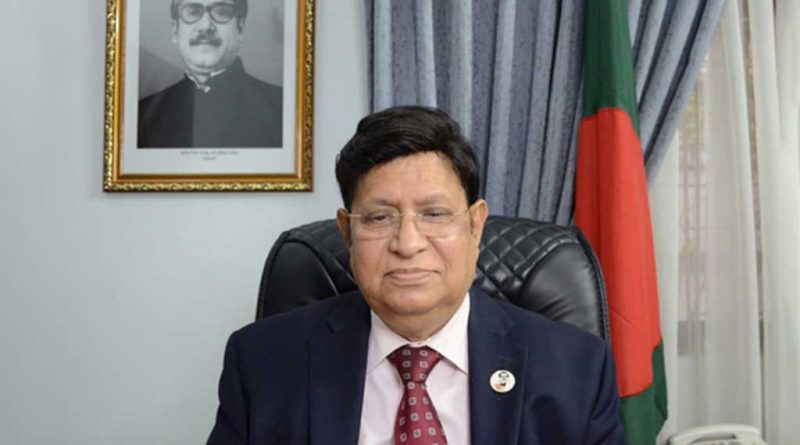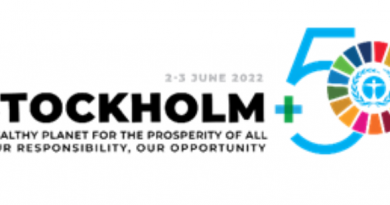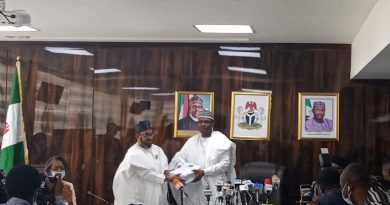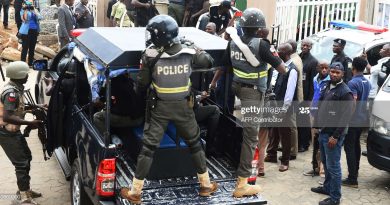Bangladesh Government Committed to Free and Fair Elections- H.E. Momem
Foreign Desk
Over the last 52 years, the relationship between USA and Bangladesh has been great and during the last year, both President Biden and Secretary Blinken wanted to strengthen it further. No wonder, the US administration has been sending one after another teams to Bangladesh to explore ways of strengthening our relationship. Currently Bangladesh and USA are working together in collaboration and partnership on a number of multifaceted issues such as climate change, Rohingya issue, women’s empowerment, UN peacekeeping, health and labor issues, trade and investment, energy and renewable energy sector, economic development, people’s empowerment, education, skill training and digital innovations. In addition, USA is engaged with us to help improve the democratic process, rule of law, freedom of press and media, etc.
Bangladesh is also trying to establish rule of law, that is, no one is above law and it abrogated the infamous “indemnity laws” in order to strengthen ‘rule of law’ and good governance; it requested the US government to handover fugitive killer of Father of the Nation Bangabandhu Sheikh Mujibur Rahman, Mr. Rashed Chowdhury to Bangladesh. Since USA is committed to rule law, hopefully they will prove their commitment by deporting him to Bangladesh soon.
mobile-details-after-main-image
Unfortunately, there is a wrong perception among few US lawmakers and officials regarding Bangladesh. They believe that Bangladesh is moving towards the Chinese debt-trap as a few Chinese companies are engaged in constructing a few mega projects in Bangladesh. Since the Chinese companies were lowest in price in submitting international public tenders, they got the job. For example, they got the job of constructing the railway line over the Padma Bridge. Bangladesh government is constructing it with its own money, but engaged a Chinese company to do the job. The same is the case with the Bangabandhu Tunnel in Chittagong. Unfortunately, nobody mentions about Japan, South Korea or India who are also involved in constructing projects in Bangladesh. Japan is constructing the 3rdterminal of Hazrat Shahjalal International Airport and also the Dhaka Metro Rail Project plus constructing a few dedicated highways and byways. Till to-date, as a single country, Bangladesh borrowed maximum from Japan and JICA. No other country can match them. Bangladesh is very prudent in borrowing. Its total foreign debt to GDP is around 13.78%, and as per IMF, if a country’s foreign borrowing is over 55%, then there is a possibility of debt-trap. Bangladesh borrowed maximum loans from the international agencies like the WB, ADB, IMF etc. amounting to 61%. It borrowed 17% from a single country and it is Japan. In fact, the total loan received from China is around 4.0 billion, which is less than 1% of its GDP. Till today American investment in Bangladesh is the highest and it is around 21%, followed by Japan, South Korea, UK, Singapore, Hong Kong and Malaysia. Recently many more countries showed interest to investment in Bangladesh and among them Saudi Arabia, UAE, India, Qatar, Australia and China are major ones.
A few countries namely the USA, India, Japan, Australia and EU countries are trying to contain the rise and spread of China. Since Bangladesh is very strategically located, in between China and India, and it maintain a very balanced and non-aligned foreign policy. The cardinal principle of its foreign policy is “friendship to all, malice towards none”, and it was laid down by Father of the Nation Bangabandhu Sheikh Mujibur Rahman.
Recently Bangladesh announced its Indo-Pacific Outlook in which it proposes to have open, free, secure, inclusive, and rules-based navigation for all. Both India and Japan have similar views.
Bangladesh maintains absolute religious harmony and tolerance, and it has thousands of media, and its press is very vibrant and free. The population size of Bangladesh is half of that of USA, yet it has almost equal number of dailies in Bangladesh, and its media and social media are hyperactive. Bangladesh is the most densely populated country in the world (3,300 people per square miles) and is a Least Developed (LDC) country; yet its labor force maintains a comfortable life, much better vis-à-vis that of other LDCs.
When the UN Special Rapporteur reported that few NGOs of Bangladesh claimed that 76 people were kidnapped or subjected to enforced disappearance in Bangladesh. The government took it seriously. On investigation it was found that out of these 76 persons, 8 are living in their own homes with their families, two are Indian nationals living in their own country, and 28 are absconding from justice. Unfortunately, police don’t have any complaints from the rest of 38 persons. Neither the Civil Society nor the Human Rights organizations could provide any information about the rest.
When their contacts of the family members were asked to submit more detail information, they failed to do it. Instead, they claimed that the government is harassing them. Therefore, police have stopped going to their homes, and instead, it sent them letters with a request to submit more details about their whereabouts at the time of missing.
It is reported that many may leave their homes or family due to family squabbles, few may be for financial and work pressures, joblessness, etc. Bangladesh government does not like to see any of its citizens to be missing or killed extra judicially. It is unfortunate that each year almost a thousand people are killed in USA without due process of law by security personnel in their line of duty. No one in the USA would like to see gun violence in schools, malls, clubs, parks or open spaces; yet it happens. Similarly, no one in Bangladesh wants to see any of its citizens getting kidnapped, yet it happens. Whenever such happens, government immediately takes all necessary corrective measures.
The current government of Sheikh Hasina is the crusader of democracy, human rights and justice. In 1971, when majority party of Pakistan was denied to form the government, the Bangladeshi people sacrificed 3 million lives to uphold democracy, justice, and Human Rights.
Bangabandhu Sheikh Mujibur Rahman, the Father of the Nation suffered imprisonment intermittently over 14 years to establish democracy, people’s right to vote, right to food and shelter, and he spearheaded a campaign against corruption, extremism, and terrorism. Following the footsteps of her father, Sheikh Hasina has also suffered pains to establish right to vote, right to food and shelter, right to freedom of Press and media. In fact, she is currently the only head of the government in the world who suffered so much to establish democracy, Human Rights and Justice. She lost her entire family, her father, her mother, her 3 brothers, including a 10-year old brother; totaling 18 members were assassinated mercilessly in a military quo in 1975. It is Sheikh Hasina who endured prison, harassment and deprivation to restore multiparty democracy in Bangladesh. Democracy is in her blood and in the vein of her party, the largest party of Bangladesh – the Bangladesh Awami League (AL). The AL is always voted to power with people’s mandate, not through backdoor like few other parties of Bangladesh. She is committed to a “free and fair” election and in order to have a free and fair election, she has instituted (1) biometric photo voter ID (to avoid fake votes), (2) transparent ballot boxes so that no one can stuff ballots before the voting starts, and (3) she established a very powerful, and highly independent Bangladesh Election Commission. It has broad power and it is responsible to conduct elections without favor or fear. They have the authority to suspend, transfer or terminate any officials both civilian and security if they find any interference or partisanship. More importantly, they have the power to cancel election in any center if they are convinced that fraud or muscle power is used and vote rigging occurred. Over the last 15 years, AL conducted thousands of elections and except a microscopic few, by and large, elections were free and fair. Only recently, Mayoral elections in five cities were conducted and each of these elections was free, fair and even non-violent. The Election Commission deserves thanks for a splendid job. However, it is a fact that even if the Election Commission, or the government of Bangladesh are committed for a free, fair, and non-violent election, without sincere commitment of all political parties, one cannot guarantee a non-violent election in Bangladesh. If the opposition parties like the BNP or the Jamaat boycott the election, or burn down the election centers, ransack the ballot boxes, create roadblocks to voters, burn-down public and private buses, trains, boats, vehicles as they did in 2014 and 2018, you cannot expect a non-violent election.
Therefore, it is imperative that all parties must participate and sincerely commit for a free, fair and non-violent election.
The writer is the Foreign Minister of Bangladesh
Source: The Sun (Bangladesh)
Photo Credit: Dahkar Tribune




